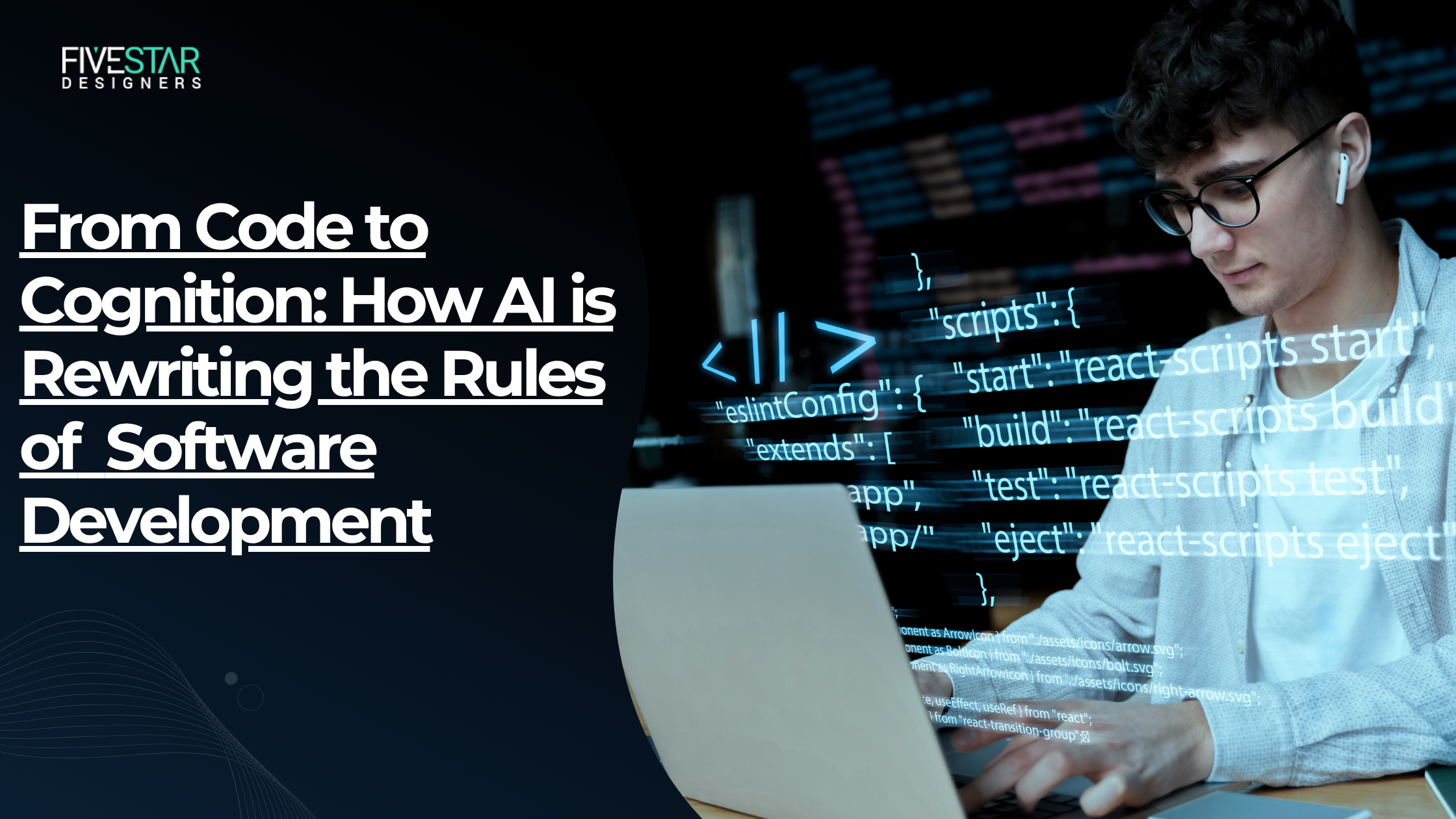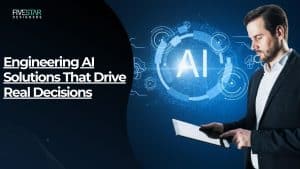The classic image of a developer, surrounded by empty coffee cups and writing line after line of code in a silent room, is becoming an anachronism. Across the United States, the very fabric of web and application creation is being rewoven by the threads of artificial intelligence.
This is not a distant future prediction; it is the current state of play for forward-thinking teams. The discipline of AI app development is maturing from an experimental niche into a core competency, reshaping workflows from initial concept to final deployment.
The Metamorphosis of the Build Process
The journey of AI app development has been one of quiet evolution before its current explosive impact. It did not materialize overnight as a fully formed disruptor.
-
From Simple Automation to Cognitive Assistance
Initial forays involved rudimentary task automation, such as basic code completion. Contemporary systems have transcended these beginnings. They now parse natural language commands, suggesting not just syntax but entire functional code blocks and architectural patterns. This evolution marks a transition from a tool that assists with typing to a partner that assists with thinking.
-
The Infrastructure Revolution
Underpinning this progress is a seismic change in computational infrastructure. The availability of powerful, scalable cloud computing resources and specialized hardware has democratized access to the immense processing power required for training sophisticated models. This accessibility allows even nascent teams to leverage capabilities once reserved for tech titans.
The 2026 Developer’s Toolkit: Intelligent Tooling Takes Center Stage
The modern developer’s arsenal is undergoing a radical augmentation. We are moving beyond integrated development environments that simply manage text to platforms that offer a form of contextual awareness.
-
Next-Generation Integrated Development Environments
Platforms like GitHub Copilot and Amazon CodeWhisperer have become ubiquitous, acting as persistent pair programmers. These systems analyze context from existing code and comments to generate relevant suggestions.
The sophistication is such that they can propose unit tests, debug existing functions, and even translate code between programming languages. This reduces cognitive load and allows engineers to concentrate on higher-level architectural challenges.
-
Automated Quality Assurance and Deployment
Artificial intelligence is also revolutionizing software testing. AI-driven testing frameworks can autonomously generate and execute test cases, exploring application pathways a human tester might overlook.
They visually validate user interfaces for discrepancies and perform regression testing with unprecedented speed and coverage. In the realm of deployment, AI algorithms optimize continuous integration and continuous deployment pipelines, predicting potential integration conflicts and managing resource allocation for smoother releases.
Stateside Innovators: Case Studies in AI-Driven Development
The practical application of these tools is no longer theoretical. A wave of UK-based startups is leveraging AI not just in their products but as the core methodology for their creation.
-
Startup A: Accelerating MVP Launches
A San Francisco-based fintech startup utilized an AI app development company to construct its minimum viable product. By employing AI-assisted coding and automated testing, the team compressed its development timeline by an estimated forty percent.
This rapid iteration allowed them to validate their core business hypothesis with real users months ahead of schedule, a critical advantage in a competitive market. Their experience highlights the strategic value of partnering with specialized AI app development services.
-
Startup B: Personalization at Scale
A New York media company built a platform featuring deeply personalized content feeds. The backend, powered by machine learning models, analyzes user engagement in real-time to dynamically curate articles and videos.
Constructing these complex, data-intensive custom AI apps was made feasible through AI tools that assisted in data pipeline management and model integration, tasks that would have required a much larger team using traditional methods.
Navigating the Integration Maze
Despite the clear advantages, weaving Artificial intelligence into existing development workflows presents significant hurdles. The path is fraught with technical and cultural obstacles that organizations must thoughtfully navigate.
-
The Technical Debt Conundrum
Integrating AI-generated code into legacy systems can create a unique form of technical debt. The opacity of some AI decisions, often referred to as the “black box” problem, makes maintaining and debugging this code a complex endeavor.
Ensuring the generated code aligns with a company’s established style guides and architectural principles requires robust oversight and governance frameworks.
-
Cultural Resistance and Skill Gaps
There exists a palpable apprehension within some engineering circles that AI tools might devalue their expertise. Overcoming this skepticism necessitates a cultural shift that reframes AI as an augmentative force rather than a replacement.
Concurrently, a skills gap is emerging; the demand for professionals who can effectively prompt, curate, and manage AI systems is outpacing the current supply of talent.
The Future Symbiosis: Human Creativity and Machine Intelligence
The trajectory points not toward fully autonomous coding systems, but toward a deeply integrated partnership. The future of software creation lies in a synergistic relationship between human intuition and machine execution.
-
Amplifying Creative Problem-Solving
AI will handle the repetitive, time-consuming aspects of coding, testing, and optimization. This liberation of cognitive resources will allow human mobile app developers to focus on what they do best: conceptualizing innovative features, designing elegant user experiences, and tackling complex, ambiguous business problems that lack a predefined algorithmic solution.
-
The Emergence of the AI-Augmented Engineer
The most sought-after developers will be those who possess a dual understanding. They will need deep domain expertise alongside fluency in orchestrating AI tools. Their role will evolve from writing every line of code to directing an intelligent system, providing high-level specifications, and curating the output.
This collaboration will enable the creation of more robust, secure, and sophisticated applications than either human or machine could achieve alone.
For businesses, this means the strategic decision to engage in AI app development will be less about chasing a trend and more about fundamental competitive necessity. The choice to build custom AI apps will define market leaders in the coming decade.
Conclusion:
The integration of Artificial intelligence into the software development lifecycle is no longer a speculative trend but an operational reality defining the competitive edge for businesses.
The most successful organizations will be those that strategically embrace this shift, viewing the adoption of AI app development services not as an expense, but as an investment in a new paradigm of creation.
So what are you waiting for? Partner up with 5StarDesigners to produce digital experiences that are more intelligent, resilient, and impactful than ever before.
FAQs:
How is AI changing software development?
AI automates tasks, improves code quality, and enhances decision-making. It frees up developers to focus on complex tasks. This boosts productivity and efficiency.
What are the benefits of AI in software development?
AI improves code accuracy, reduces bugs, and speeds up development. It also enables predictive analytics and personalized user experiences. This leads to better software quality.
Can AI replace human developers?
No, AI augments human capabilities, making development faster and more efficient. Human judgment and creativity are still essential for complex tasks. AI is a tool, not a replacement.




